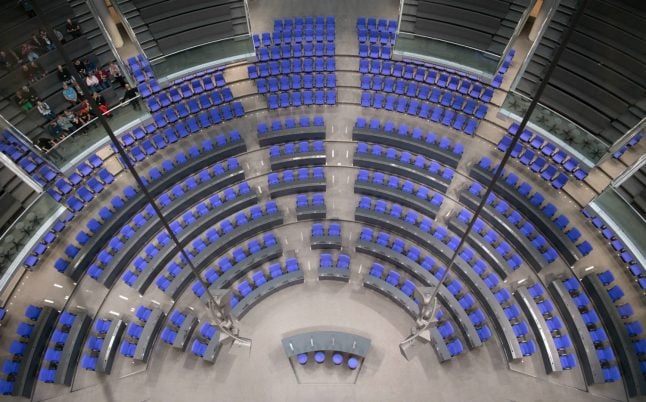The seating order in the 18th Bundestag (2013-2017) was simple. Die Linke, the successor party to the East German communists, went on the far left. The Social Democrats sat next to them, the Greens went in the middle, and Angela Merkel’s conservative Christian Union went on the right. The seating thus reflected the parties’ positions on the political spectrum.
But things have been complicated for the 19th Bundestag by the arrival in parliament of the Free Democrats (FDP) and the far-right Alternative for Germany. While no one is disputing that the AfD will be seated on the very right of the plenum, conflict has arisen over where the FDP should go.
At a meeting held on Wednesday, representatives of all six parties met to thrash out the seating order. But no consensus could be met after the FDP rejected the plan to put them next to the AfD.
The pro-business party are determined to be placed in the centre of the Bundestag.
FDP MP Marco Buschmann told Spiegel that the party “belongs in the middle of the parliament” and that sitting there is a question of “great symbolic importance.”
The FDP have pointed to the fact that in state parliaments they have traditionally sat in the middle between the Green party and the Christian Union. On the other hand, the last time they were represented in the national parliament they sat to the right of Angela Merkel's Union.
Party representatives will meet again on October 13th to try and find a solution to the deadlock.
At the national election on September 24th the AfD won 12.6 percent of the vote, making them the third largest party in the Bundestag. It is the first time that a party further to the right on the political spectrum than the Christian Union has made it into the parliament since the late 1940s.
Despite the FDP and the CDU talking tough during election campaigning on the AfD's main political focal point – immigration – neither party is keen to be associated with the upstart party.
Both FDP and Christian Union have ruled out forming a coalition with the AfD. As the SPD have also ruled out joining the next government, a coalition deal between the Union, the FDP and the Green party is the only viable option.
SEE ALSO: These 7 quotes perfectly sum up the German election




 Please whitelist us to continue reading.
Please whitelist us to continue reading.